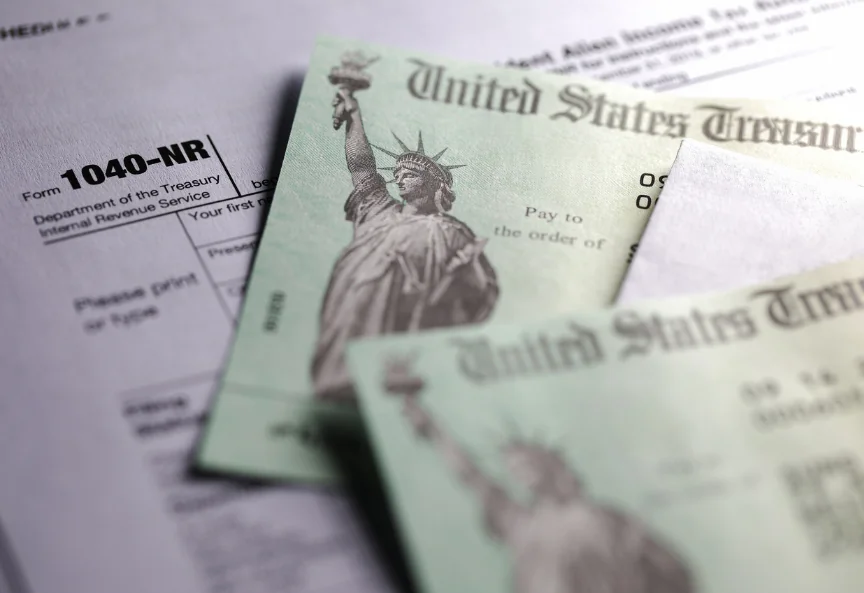*Last Updated January 15, 2021
The 2021 tax season is coming up and it's important to know the changes to tax filing this year. Here are 9 steps to help you prepare for the 2021 tax season ahead.
[lwptoc numeration="none" skipHeadingLevel="" skipHeadingText="At Rush, we can help you prepare yourself for the 2021 tax season, and finally put 2020 behind you – once and for all. "]
This past year has been a rollercoaster and a half, and with the New Year's celebrations behind us, it’s time to fully move on from 2020 in all respects but one: tax filing season.
Preparation is key when talking taxes, and this year is no different – though there have been a few changes you will need to be aware of and depending on how you filed and what you received, you may be eligible for tax credits you hadn’t expected.
Furthermore, before you start picking new itemized deductions to reflect the year you’ve had, it’s important to understand the rules around certain itemized deductions – especially the home office deduction. Let’s dig in.
2021 Tax Changes
Let’s go over the important basics. First, know your deadline for filing. There are very steep penalties for failing to file your tax returns on time, and the deadline this tax filing season is Thursday, April 15th.
Secondly, there have been some minor changes to the federal tax brackets to reflect inflation. There have been no changes to federal tax rates from 2019. The standard deduction has also been increased to account for inflation. The standard deduction was doubled in 2017, as part of the Tax Cuts and Jobs Act – while it’s now at $12,400 for single filers, it used to be $6,000.
As a refresher, know that the federal US government utilizes a progressive tax. What this means is that the tax rate goes up as the taxable value increases.
In other words, if you’re a single individual who earned $80,000 in taxable income in 2020, then the first $9,875 you earned will be taxed at 10 percent, while every dollar after that up until $40,125 will be taxed at 12 percent, and every dollar after that up until $85,525 will be taxed at 22 percent. Here’s a handy news release from the IRS on the tax brackets and rates for your 2020 returns.
*January 2021 IRS Updates
According to the January 15th IRS News Release, the IRS will begin accepting and processing 2020 tax returns on February 12, 2021 for individuals to allow for adequate time to test systems following the December 27 tax law changes.
The IRS Commissioner Chuck Rettig stated:
"Planning for the nation’s filing season process is a massive undertaking, and IRS teams have been working non-stop to prepare for this as well as delivering Economic Impact Payments in record time... Given the pandemic, this is one of the nation’s most important filing seasons ever. This start date will ensure that people get their needed tax refunds quickly while also making sure they receive any remaining stimulus payments they are eligible for as quickly as possible.”
The IRS has issued the following guidelines to speed refunds and help with tax filing:
-
-
-
"File electronically and use direct deposit for the quickest refunds.
-
Check IRS.gov for the latest tax information, including the latest on Economic Impact Payments. There is no need to call.
-
For those who may be eligible for stimulus payments, they should carefully review the guidelines for the Recovery Rebate Credit. Most people received Economic Impact Payments automatically, and anyone who received the maximum amount does not need to include any information about their payments when they file. However, those who didn’t receive a payment or only received a partial payment may be eligible to claim the Recovery Rebate Credit when they file their 2020 tax return. Tax preparation software, including IRS Free File, will help taxpayers figure the amount.
-
Remember, advance stimulus payments received separately are not taxable, and they do not reduce the taxpayer’s refund when they file in 2021."
-
-
If you have questions about the upcoming tax filing season, contact our tax professionals.
Tip 1: Gather Your Tax Filing Paperwork
Again, the key is preparation. While the tax season is still a few months away, it never hurts to be prepared. Be sure to claim your Form W-2 from your employer, and if eligible, seek out Form 1099 from paying clients, miscellaneous income, and banks.
If you received an Economic Impact Payment (i.e. a stimulus check), be sure to include Notice 1444 in your tax records. Don’t worry, stimulus checks aren’t taxable income. But the form will serve as a way to report unreceived or undelivered payments or clarify how much you received and when.
If you haven’t checked in a while, your Individual Tax Identification Number may have expired. Use Form W-7 if that’s the case.
Tip 2: Reconsider Your Deductions
Given everything that happened this year, it might be a good idea to comb through your deductions and see what does and does not apply to you in 2020.
-
-
- How much mileage can you deduct as a business expense?
- Does the paying hobby you developed at home count as a potential business, or does the IRS see it differently?
- Do you apply for a Child Tax Credit?
-
It would be best to go through the details with a tax professional who can help you with your tax planning and advise you on what deductions are safest and best given your circumstances.
Tip 3: Check Eligibility for the EITC
The pandemic has hit many Americans hard – especially small business owners and low- to moderate-income households. Depending on your financial circumstances this year, you may be eligible for an earned income tax credit (EITC).
This is a tax credit, or refund, that reduces the amount of tax you owe, potentially giving you money on the wages that were withheld or the estimated tax payments you made throughout the year.
Tip 4: Keep in Mind Paycheck Protection Programs and Business Deductions
The CARES Act expanded upon Paycheck Protection Program (PPP) loans, giving eligible businesses a loan that could be partially or wholly forgiven if they spent most or all of it on payroll costs, commercial rent or mortgage payments, and utilities.
But as a caveat, any expenses covered by your PPP loan cannot be deducted from your income taxes. Furthermore, your loan isn’t actually forgiven before the Small Business Administration has approved your loan forgiveness application, so be sure to prepare and send that in as soon as possible.
Tip 5: Home Office Deductions and Working from Home
While it might be tempting to take a home office deduction for the hundreds of hours you spent working from home this year, note that this is a deduction only available for self-employed taxpayers. Even if your boss ordered you to work from home this year, and you set up an office for yourself, you can’t take that deduction if you’re an employee.
Tip 6: Stimulus Checks Aren’t Taxable Income
Again, just to make sure – you don’t need to worry about including the stimulus checks as taxable income. However, again, keep a copy of Notice 1444 as part of your tax record for the year.
Tip 7: You Might Need to Make Tax Payments on Unemployment Benefits
If you’ve had to avail of unemployment benefits this year as a result of the pandemic, you might not know that depending on how you filed for benefits, you may need to make estimated tax payments on your unemployment income. If you chose to have taxes on your benefits withheld, you won’t need to worry about this.
Tip 8: Keep Deferred Payroll Taxes in Mind
If your employer or you chose to defer payroll taxes this year in favor of higher wages, you might have heard that this will result in a larger withholding of the payroll tax in 2021 as a way to pay back the deferred taxes.
However, a recent update has pushed back the deadline on when these deferred taxes need to be paid back, which means you might not see your payroll taxes on your wages increase for the first few months of 2021.
Tip 9: Get a Tax Professional to Help
Taxes can get complicated, and with the changes many of us had to go through during the pandemic, you might be in for an even more complicated set of tax returns this year than you’re used to. If you want to make sure you’re being as efficient with your taxes as possible, while minimizing the risk of running into an audit, you will want an experienced tax attorney on your side.
At Rush, we can help you prepare yourself for the 2021 tax season, and finally put 2020 behind you – once and for all.











